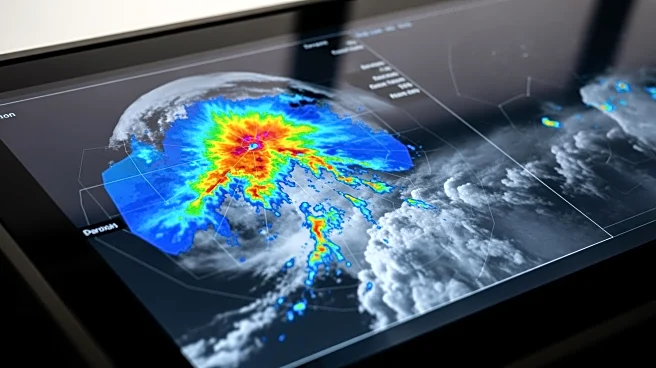What is the story about?
What's Happening?
The Israel Defense Forces (IDF) have confirmed the release of seven hostages by Hamas, marking the first exchange under a newly established ceasefire agreement. This development follows two years of conflict between Israel and Hamas in the Gaza Strip. The hostages were handed over to the Red Cross and are now in Israeli custody, although their condition has not been disclosed. The ceasefire deal includes the release of 20 hostages by Hamas in exchange for over 1,900 Palestinian prisoners. The announcement of the hostages' release was met with widespread public celebration in Israel, with large gatherings and public screenings taking place, particularly in Tel Aviv.
Why It's Important?
The ceasefire and subsequent hostage exchange represent a significant step towards de-escalating the prolonged conflict between Israel and Hamas. This development could pave the way for further negotiations and potentially more comprehensive peace talks. The release of hostages is a critical humanitarian gesture that may improve relations between the two parties and reduce tensions in the region. The exchange also highlights the role of international organizations like the Red Cross in facilitating humanitarian efforts during conflicts. The broader impact on regional stability and international diplomatic relations remains to be seen, but this move is a positive signal towards peace.
What's Next?
The continuation of the ceasefire and successful completion of the prisoner exchange could lead to further diplomatic engagements between Israel and Hamas. Stakeholders, including international mediators and regional governments, may push for more comprehensive peace negotiations. The situation remains delicate, and any breach of the ceasefire could lead to renewed hostilities. Monitoring the implementation of the agreement and ensuring compliance by both parties will be crucial in maintaining peace. The international community may increase its involvement to support and sustain the ceasefire.
Beyond the Headlines
The hostage exchange and ceasefire may have deeper implications for the geopolitical landscape in the Middle East. It could influence the dynamics of power and alliances within the region, potentially affecting relations with neighboring countries and international powers. The humanitarian aspect of the exchange highlights the ongoing challenges faced by civilians in conflict zones and the importance of international humanitarian law. Long-term peace efforts may require addressing underlying issues such as territorial disputes, security concerns, and political recognition.

















